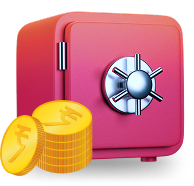Paisabazaar app Today!
Get instant access to loans, credit cards, and financial tools — all in one place
Our Advisors are available 7 days a week, 9:30 am - 6:30 pm to assist you with the best offers or help resolve any queries.
 Get the App
Get the App

Get instant access to loans, credit cards, and financial tools — all in one place

Scan to download on

Most people equate investment to risks but that’s not always true as there are ways to invest your money without any risk involved. One of the most used non-risk investment option is fixed deposit (FD). Fixed deposit is one of the simplest and safest investment options. It offers less risk, tax benefits, assured maturity amount and other benefits. If you’re thinking to invest in fixed deposits, there must be a lot of questions circling around in your mind. Read further, you may get answers to all your questions.

Compare and choose from trusted banks and NBFCs
Manage all FDs in one place
No Bank A/c Required
Investments of up to Rs. 5L insured by DICGC

Invest in FD and Get Lifetime FREE Step Up Credit Card
Apply Now
A fixed deposit (FD) is a financial product given by the banks to its customers at an interest rate higher than that of a regular savings account. It is a type of investment in which an account holder deposits a certain amount with the bank at a fixed interest for a fixed period. On this amount, the bank provides the customer interest until it reaches its maturity.

 Manage all FDs in one place
Manage all FDs in one place
 No Bank A/C Required
No Bank A/C Required

Fixed deposits have various benefits over other investment options. Some of the benefits are listed as follows:
The reason why fixed deposit is said to be safe is because it gives you assured returns. The returns are generally over the returns you get on your savings account. The returns may vary as it depends on the principal amount, banks and also the tenure of your fixed deposit investment.
In fixed deposit, the customers can choose to fix their money from 7 days to 10 years. The fixed deposit tenure varies from one bank to the other. In addition, each bank offers different interest rates to the customers. If you are not satisfied with your primary bank’s FD interests or other criteria, you can always approach other banks to open a FD account with them irrespective of whether you hold an account with them or not.

There are various ways to invest your money. The investment options such as mutual funds, bonds and stocks give you high returns, however, they are volatile in nature as they are linked to market risks. People who do not want to or are not ready to take such risks can invest in FD. They are a great option for people with long-term financial goals.
Medical emergencies can arrive anytime. In such a situation, you need cash urgently. In those conditions, the fixed deposit acts as an emergency fund as banks allow you to raise a loan against your fixed deposits. On the basis of your case, the banks can offer loans ranging from 60% to 90% of the deposited amount. You can get even a higher amount but with higher interest charges.
You can easily break your fixed deposit before it matures. If you have a financial emergency, you can withdraw the locked-in amount anytime for a small penalty. In case of emergency, it is difficult to liquidate other forms of investments such as stocks and bonds in a short time because of their high value. Also, if there is an urgent need of money, the asset owner may have to sell it at a rate much lower than what they bought. Unless there is an emergency, it is advisable to not withdraw money from their fixed deposit before maturity as it will affect the returns.
Tax Benefits of Fixed deposits is that they have a minimum maturity period of five years are exempted from taxation.
The following people are eligible to invest in a fixed deposit:
The minimum deposit amount required to open for the FD account is Rs. 1,000, however, it may vary from one bank to the other.
There is no maximum limit to invest in a FD account; however, it may vary from one bank to the other. The depositors who invest an amount above Rs. 1 crore on fixed deposit can get customized interest rates from their bank.
In fixed deposit, the customers can choose to fix their money from 7 days to 10 years.
How you will receive you interest amount depends on the investment scheme you have chosen at the time of opening your fixed deposit account. If your money is deposited under the traditional scheme, the FD interest will be credited to your savings account on a monthly or quarterly basis.
If your money is deposited under the reinvestment scheme, interest will be added to the principal amount periodically for reinvestment and will be compounded as per the time.
The interest amount on your FD can be received on monthly, quarterly or annual basis.
Yes, most banks and other financial institutions offer senior citizens higher rate of interest on their fixed deposit accounts. They are liable to get this benefit even if they open a fixed deposit account with a co-applicant who is not a senior citizen.
Yes. If you urgently require money, you can withdraw money from your fixed deposit account before it matures. This is called premature withdrawal. You can even choose to partially withdraw the required amount from your fixed deposit account. However, the premature withdrawal before maturity is not advisable as the banks, according to their set of rules, will reduce the rate of interest.
If you wish to close your fixed deposit account, your bank will pay you back the principal amount as well as the interest either at a lower rate of interest and/or after deducting a penalty.
Lower rate of interest:
In case of premature withdrawal, the interest on your FD will be paid not as per the original rate of interest but as per the rate applicable to the date of the deposit.
For instance, you opened an FD account on 1 June 2013 for 4 years at 8%. Due to some reason, you want to close your fixed deposit account after one year on 1 June 2014. At the time of opening of your FD, the interest rate applicable for one year FD was 7.5%. So when you close the account, you will earn interest at 7.5% per annum on your deposits and not at the original rate of 8%.
Penalty:
Your bank or the financial institution where you have your fixed deposit account can also deduct 0.5 to 1% rate of interest from the rate of interest that was applicable to the actual period of FD.
For instance, you have opened an FD account for 4 years at 8% and after two years you wish to close the FD. The interest rate applicable for two years on FD was 6.25%. If your bank asks for penalty when you close your FD, they will reduce it by 0.5% to 1% from the 6.25% of rate of interest.
Note:
Some bank FDs even have a minimum lock-in period, according to which no interest will be paid by the bank if you withdraw money from your FD account before the lock-in period.
If you withdraw within a week or so from the date of the deposit, you will give no interest amount and may even be exempted from the premature closure charges.
TDS (Tax Deduction at Source) is not applicable to the interest earned up to Rs. 5,000 to 10,000 (depending on the financial institution). If the investor’s total income is lower than the taxable limit, they can furnish Form 15G/15H at the time of opening a FD account to avoid tax deduction.
Yes. One of the benefits of FD is that you can take a loan against it. In case of a financial emergency, you can take a loan against your FD instead of breaking it before maturity. This will save you from losing interest on your fixed deposit. The banks can offer loans ranging from 60% to 90% of the deposited amount. You can even get a higher amount but with higher interest charges. The rate of interest on the loan against your FD amount is usually 2% to 2.5% higher than the rate of interest given on your fixed deposit. However, it is still less than what you will have to pay on a personal loan.
Yes. Keeping the unforeseen circumstances in mind, the banks and other financial institutions offer nomination facility to the depositor. If the depositor dies, the nominee can lay claim to the fixed deposit amount on maturity. This can, however, vary on the basis of the mode of holding.
